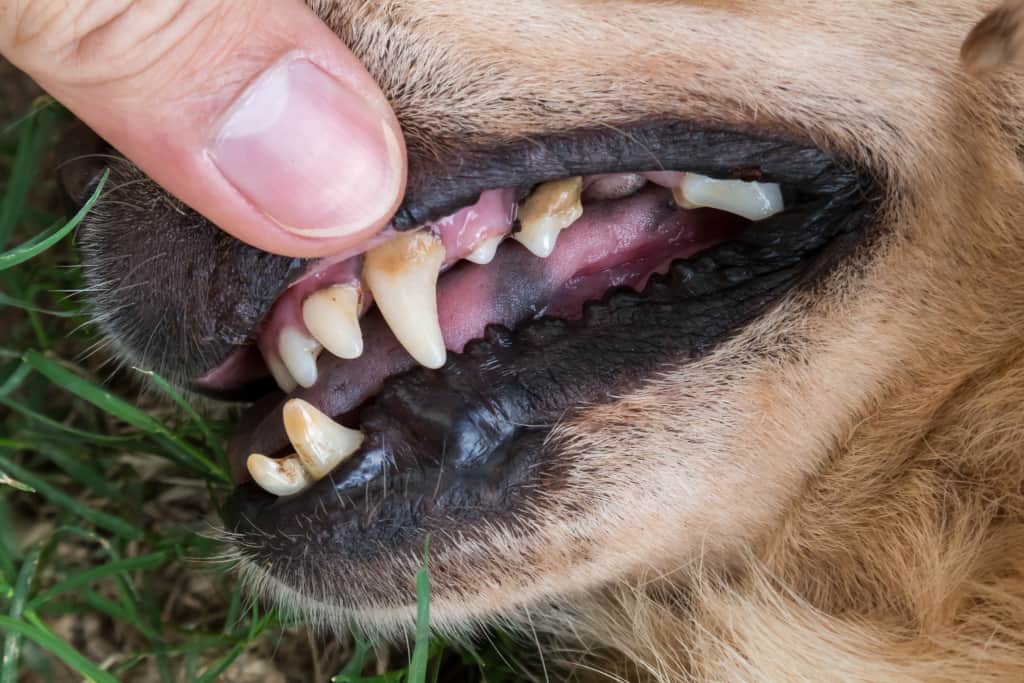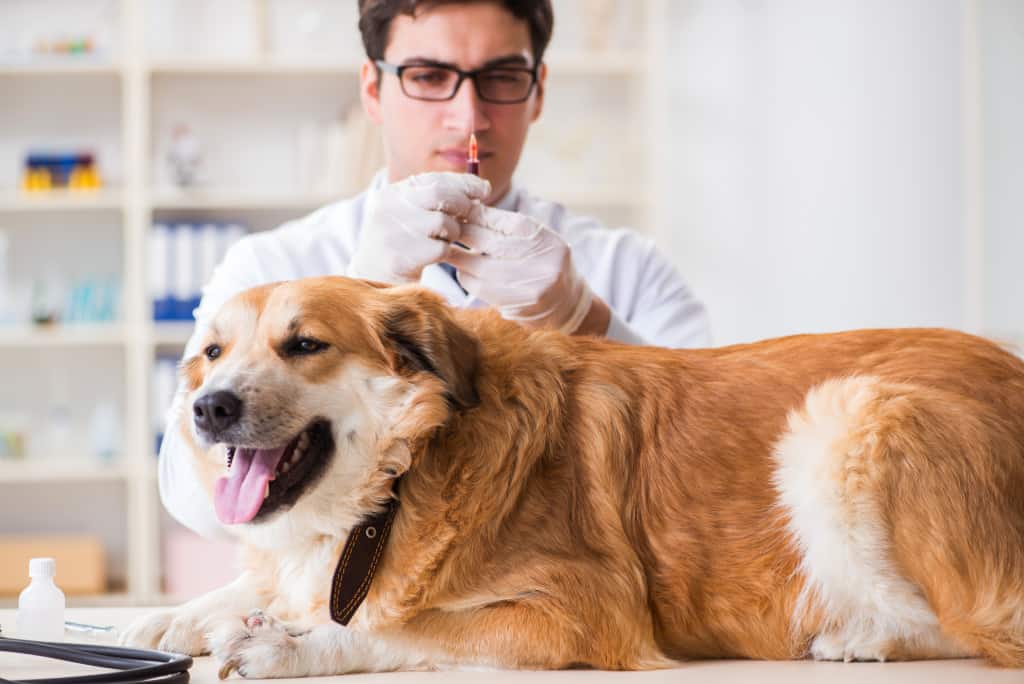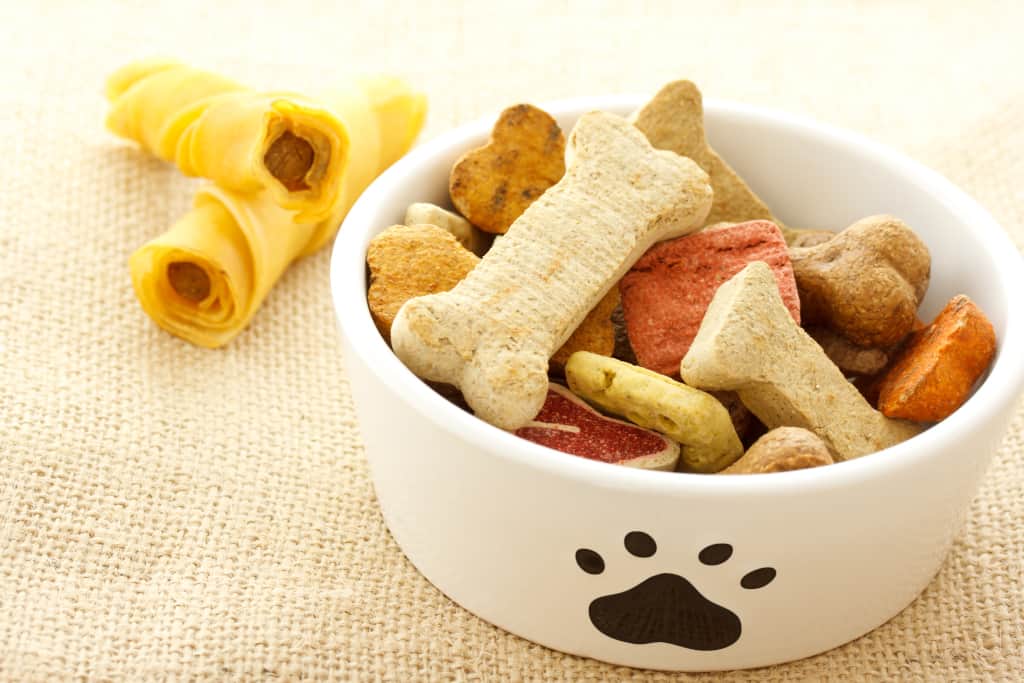Dogs are like humans. Your voracious pup can experience a loss of appetite, which can cause them to doesn’t want to eat at all. That’s something you should be taking seriously and respond promptly, especially if your dog is a good eater who would usually down it right away without any hesitation. The reason is that the cause of inappetence can vary from something very minor like an upset stomach to a life-threatening health condition like cancer.
Below, we’ve listed some of the possible reasons why your dog refuses to eat and what you can do about it to prevent it from leading to malnourishment and dehydration.
1. Dental Issues

One of the most common reasons canines aren’t eating is because of dental problems. Cracked, decaying teeth, and inflamed gums, also known as gingivitis, can cause lots of pain in their mouth when they try to eat.
And if gingivitis is left untreated, it can develop into a more severe condition called periodontal disease, which can destroy the tissues around their teeth, cause tooth loss, and potentially lead to heart, kidney, and liver disease. Therefore, it is crucial to properly care for and brush your fido’s teeth with toothpaste formulated for dogs since they were puppies.
What To Do:
- Consult your trusted vet immediately if you suspect your pup is experiencing oral pain. Some of the signs include bad breath, red or swollen gums, unusual drooling, pawing at the mouth, blood in their water or food bowl.
2. Medications, Vaccinations, or Recent Surgery

While medications and vaccines can prevent many contagious diseases in dogs and help save lives, they sometimes have temporary adverse side effects, which can cause dogs to lose appetite.
It is also not uncommon that dogs won’t eat after a surgical procedure due to anesthesia’s side effects, causing them to feel nauseous. So, if your four-legged friend has been put on a drug regimen, got vaccinated, or just gone through surgery, then that is very likely the reason why they aren’t eating.
What To Do:
- Keep a close eye on your furkid and monitor their behavior. If they still look unwell and don’t want to eat after 24 hours, call your vet for advice.
3. Upset Stomach
Another possible reason your pup loses interest in eating food is that they have a stomachache. Dogs are known to eat everything like dirt, grass, sticks, plastics, socks, or even feces and don’t mind getting into trash cans to gobble up garbage.
And often, these seemingly tasty foreign objects will end up blocking their intestines and upset their stomach, causing them to vomit and experience lethargy and diarrhea. In severe cases, these foreign bodies can pierce your fido’s intestine and may lead to abdomen infections, known as peritonitis.
Hence, it is imperative to teach your canine not to scavenge, or you can also keep non-food items out of your dog’s reach with a dog muzzle during walks.
What To Do:
- If you suspect your furry friend swallows things they shouldn’t or are already showing signs of an upset stomach, take them to your veterinarian immediately as your vet may need to perform gastrointestinal surgery to remove the blockage.
4. Medical Issues
Like humans, dogs will lose their appetite to eat when they are sick. And if your four-footed friend also shows other more severe symptoms like lethargy, repeatedly vomiting, cough, sneeze, abnormal bleeding, and bloody stools, contact your vet immediately. The reason being is that it could also be an indicator of them suffering from serious illnesses, infections, organ failures, pancreatitis, or even cancer.
What To Do:
- Contact your vet.
5. Spoiled Food
Dog foods can get smelly, grow mold and bacteria, and become unsavory to canines, although they have a long shelf life. And if your pup refuses to eat the food but is happy to eat a treat, then it’s probably because the kibble has gone rancid.
So, it’s imperative to check the expiration date on the packaging before giving it to your fido. And always make sure to read and follow the instructions on the label to store the food properly.
What To Do:
- Throw out the bag of kibble that has gone stale and buy your pup new, freshly made food.
6. Food Quality

Foods made with low-quality ingredients will have less protein and nutrition, which dogs may avoid eating as they are less appealing.
While you might argue that your furkid has been eating the same brand for years and you’ve never had any issues with it, that doesn’t mean the manufacturer can’t cut back on the ingredients.
Try to open a new pack to see how your dog reacts. If they still aren’t touching the food, then there may be changes in the quality.
What To Do:
- Swap over to a different flavor or try other brands.
7. Picky Eater

Some dogs are picky eaters and may have flavor preferences, in which they will stay away from certain ingredients and only stick to the one they like. Dogs could develop this selective eating habit and become a fussy eater if they were often offered a wide variety of dog foods or fed too much table scraps.
What To Do:
- Give your dog the food you usually would, and leave it out for 15-30 minutes. If they didn’t consume any, remove it until the next mealtime. Keep repeating this method, and you will see them start eating when they are hungry as they understand that they have no other choice. Though it may seem a bit mean, this approach is effective at correcting picky eating behavior.
- It is no secret that exercise can tire dogs out, make them hungry, and increase their appetite to replenish the calories burned. So, take your canine out for a run or go for a walk before mealtimes!
- Or you can also warm up your dog’s food before giving it to them. Warming up the food will help improve the flavor and make it tastier, and as a result, your fido will be more likely to eat.
8. Overfeeding
The last thing that you would want when your stomach is super full is, obviously, more food. The same goes for dogs. The reason why your pup isn’t eating is probably because of you overfeeding them.
Not only giving your dog too much food will affect their appetite, but that can also lead to bloat, obesity, and other serious health consequences like heart disease and diabetes. So, always avoid feeding them too much food, and cut back the treats. In fact, treats should only account for 10% of your fido’s daily caloric intake!
What To Do:
- Only feed your pup the amount of food according to the serving suggestion on the packaging. If you are unsure about it, check with your vet.
- Ensure the treats you give to your dog are within 10% of their daily calories.
9. Diet Changes
Heard about another dog food brand that is more nutritious for your furry friend, and you’ve decided to make a switch? If so, then that might be the reason why your canine goes on a hunger strike. While the new food may be better for them, your dog might have different opinions as they are already used to the old formula they’ve been eating for years.
What To Do:
- Transition your dog’s diet slowly by mixing the new food with the one your dog is already familiar with, then gradually add more over a few days. Not only can that help your fido slowly become accustomed to it, but that will also allow their digestive tract to adjust without suffering from any digestive problems.
And the AKC suggests:
- Day 1: 25% new food and 75% current food
- Day 3: 50% new food and 50% current food
- Day 5: 75% new food and 25% current food
- Day 7: 100% new food
10. Boredom

Not changing your dog’s diet for a long time can also be an issue as they will eventually get bored eating the same thing. No one likes to eat the same meal every day after all!
So, it’s a good idea to mix things up once in a while and add some meal toppers to their food like vegetables, fruit, salmon oil, fish oil, or pre-packaged organ meat to increase its palatability.
What To Do:
- Consider adding meal toppers to their food to improve its flavor.
- Or you can also make their feeding time more fun for them! You can do this by putting their food in a treat-dispensing toy, hiding their kibbles around the house, or simply throwing your dog’s food in the yard and making them work for it.
11. Anxiety
What To Do:
- Give your canine plenty of exercise.
- Use a calming collar for dogs to help them relax.
- Find out what causes your pup to become stress and fearful and minimize their exposure to those triggers.
- Provide your pup with desensitization and counterconditioning training.
- Talk to your vet about anti-anxiety medications.
12. Behavior Issues
Some dogs’ refusal to eat is purely behavioral. For instance, some canines might feel uneasy around other dogs when eating, hence deciding not to eat whatsoever when other pets present in the same room.
Some are already used to people hand-feeding them from the table. So, they will choose to put their chin on your leg and wait for you to hand-feed them instead. And some don’t want to eat at all simply because their bowl is at an uncomfortable height.
What To Do:
- The solution depends on what behavioral problems your dog has. For example, if it is due to the bowl’s height, use an elevated bowl instead. And if they prefer to eat alone, then provide them a safe eating space where they can eat their meal uninterrupted.
13. Change in Routine or the Environment
Change in routine or the environment can also contribute to loss of appetite in dogs. And that essentially means if there’s a change in your dog’s feeding time, a family member left for vacation, moving to a new house, or if they are traveling with you, your pup may skip their meal.
That is because they are not used to eating outside of the scheduled mealtime, sad about the absence of the family member, not comfortable with the new surroundings, and it could also be due to motion sickness if your pup travels with you.
What To Do:
- Stick with the regular feeding time.
- Exercise your dog to get their mind off obsessing about the family member not being home.
- Put a calming dog collar on your furkid to help reduce their stress of moving to a new location or traveling.
- Consult with your veterinarian about over-the-counter or prescription medications if your dog gets sick from traveling.
14. Aging
When dogs get older, their appetite will tend to decrease. Plus, there are many problems senior dogs will face, like degrading in their sense of smell, hypothyroidism, constipation, stiffness from arthritis, and chronic, low-grade pain. Possibly accompanied with other more severe health problems, it’s not surprising at all to see a change in their eating habits.
What To Do:
- Don’t scold your elderly dogs for avoiding their food. Instead, be more patient and supportive. There are many ways you can encourage and help old dogs to eat. Some examples include warming up their food, minimizing snacks and treats in-between meals, supplying them wet food or new flavor food, using raised feeding bowls to make it easy for them to eat, and exercise them.
Conclusion
There are too many reasons why your dog won’t eat. So, it is imperative to be vigilant and observe what could be the cause of your four-legged friend not wanting to touch their food. That way, you will be able to determine the best approach to help them regain their appetite. And if you have any concerns you can’t address, make sure to head directly to your vet for professional advice.

